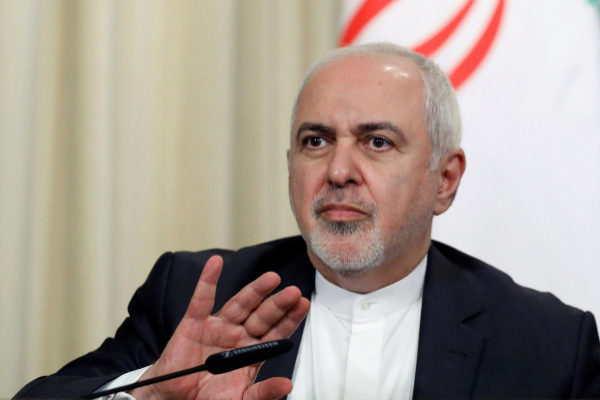- Summit: Macron's G7 disables Trump's crises with China and Iran
- Covenant: The signatories of the nuclear agreement with Iran pledge to continue the dialogue in full escalation
- Nuclear race: Iran raises uranium enrichment to pressure the EU
Iran is against the revision of the nuclear agreement signed in 2015 because it believes that "Pandora's box cannot be opened and then closed again," Iran’s Foreign Minister Mohamad Yavad Zarif said in Moscow at the beginning of his meeting with the head of Russian Foreign, Seguei Lavrov.
The head of Iranian diplomacy has added that Tehran continues its talks with the European signatories of the pact so that they fulfill the commitments made under the agreement.
At the end of the meeting, Zarif and Lavrov have agreed that compliance with the JCPOA, approved by the UN Security Council, cannot be conditioned to other requirements, as demanded by the United States, which are not part of the agreement.
The Iranian minister, like his Russian counterpart, has insisted that JCPOA refers exclusively to the Iranian nuclear program and that differences in other matters are not grounds for breach of the agreement.
"The issue of Iran's defensive missiles will not be on the table," said the Iranian minister, noting that Tehran will not talk to the US or other countries in the region of the ballistic rocket program.
For his part, the head of Russian diplomacy has stressed that Iran's missile program "is developed in full accordance with international law and is not subject to any prohibition."
Lavrov has indicated that Moscow fully understands that Iran has been forced to reduce compliance with its "voluntary commitments" under JCPOA as a "direct consequence of the inadmissible actions of the United States." In this regard, Zarif has warned that if the European partners do not fulfill their part of the agreement, Tehran will go one step further in reducing their commitments.
The Iranian authorities and those of the six major world powers (France, United Kingdom, Germany, China, Russia and the US) reached a historic agreement in 2015 by which Tehran promised to limit its nuclear program in exchange for economic benefits and the uprising of sanctions by Washington.
However, in May 2018, US President Donald Trump ordered the US exit of that nuclear agreement and again imposed on Iran a series of sanctions that weigh, in particular, on the oil sector, crucial for that country.
Almost a year later, the Iranian authorities decided to stop fulfilling some of their obligations with the pact to pressure Europe to facilitate at least its oil exports.
Iranian President Hasan Rohani told his French counterpart, Emmanuel Macron, on Sunday that Iran will reduce more nuclear commitments in the next few days if the European Union (EU) fails to counter US sanctions.
Macron announced during the recent summit of the Group of Seven (G7) most developed countries held in France that he hoped to close a meeting between Rohani and US President Donald Trump, but the Iranian insisted that there will be no negotiation with Washington while it is not lift the current sanctions.
Zarif has lamented the lack of determination in this regard of the European signatories of the pact and indicated that "Iran, Russia and China have never stopped cooperating under the JCPOA."
"We consider Russia and China partners who help us in the framework of the agreement and who maintain a firm position while continuing to fight for the survival of this agreement," he said.
According to the criteria of The Trust Project
Know more- Iran
- France
- U.S
- Donald Trump
- European Union
- Emmanuel Macron
- Russia
Summit starts the G7 of Biarritz under strong security measures
SummitThe European Union, in defense of multilateralism in the G7
France Emmanuel Macron wants to make France and Europe a "power of balance"

